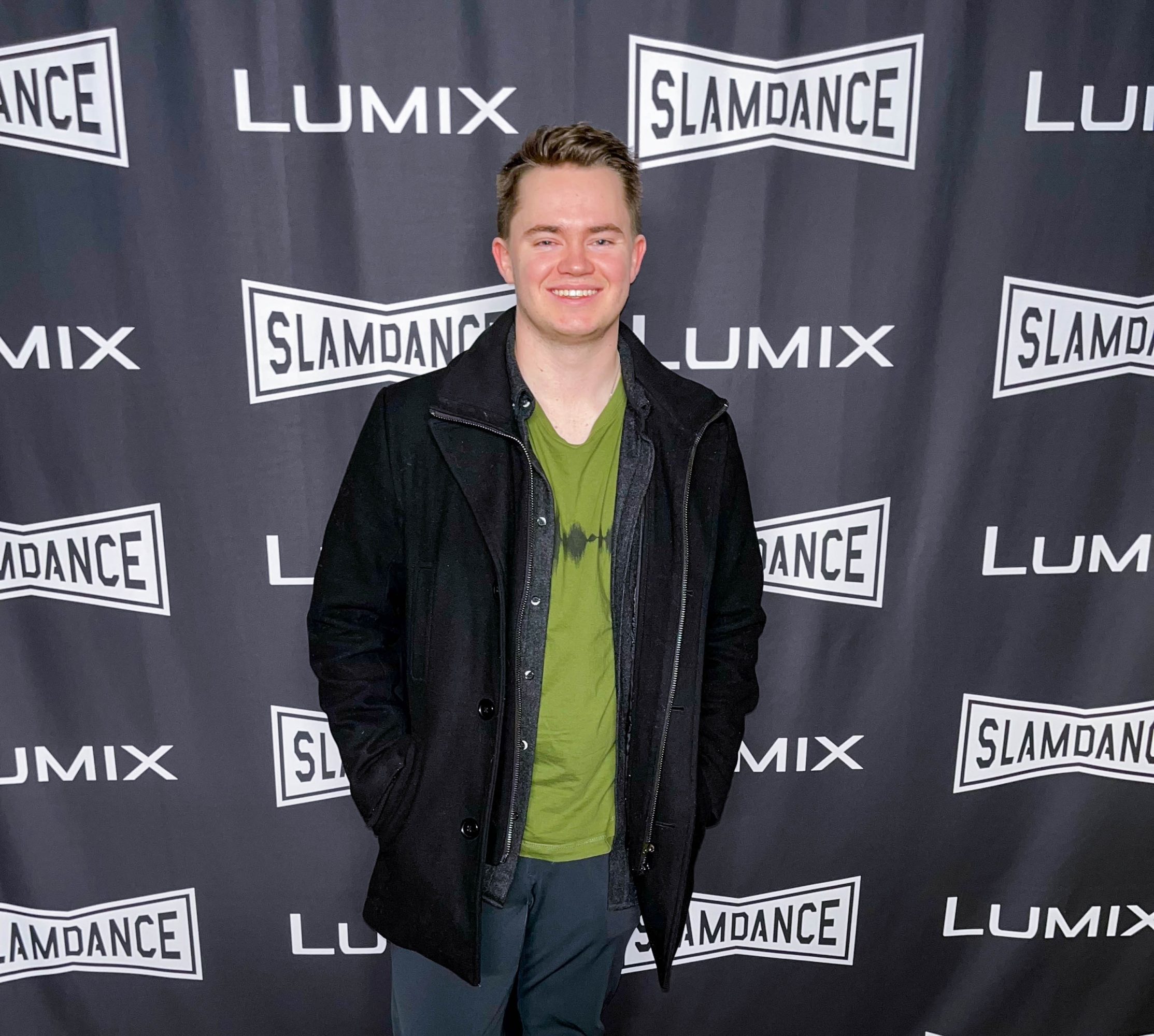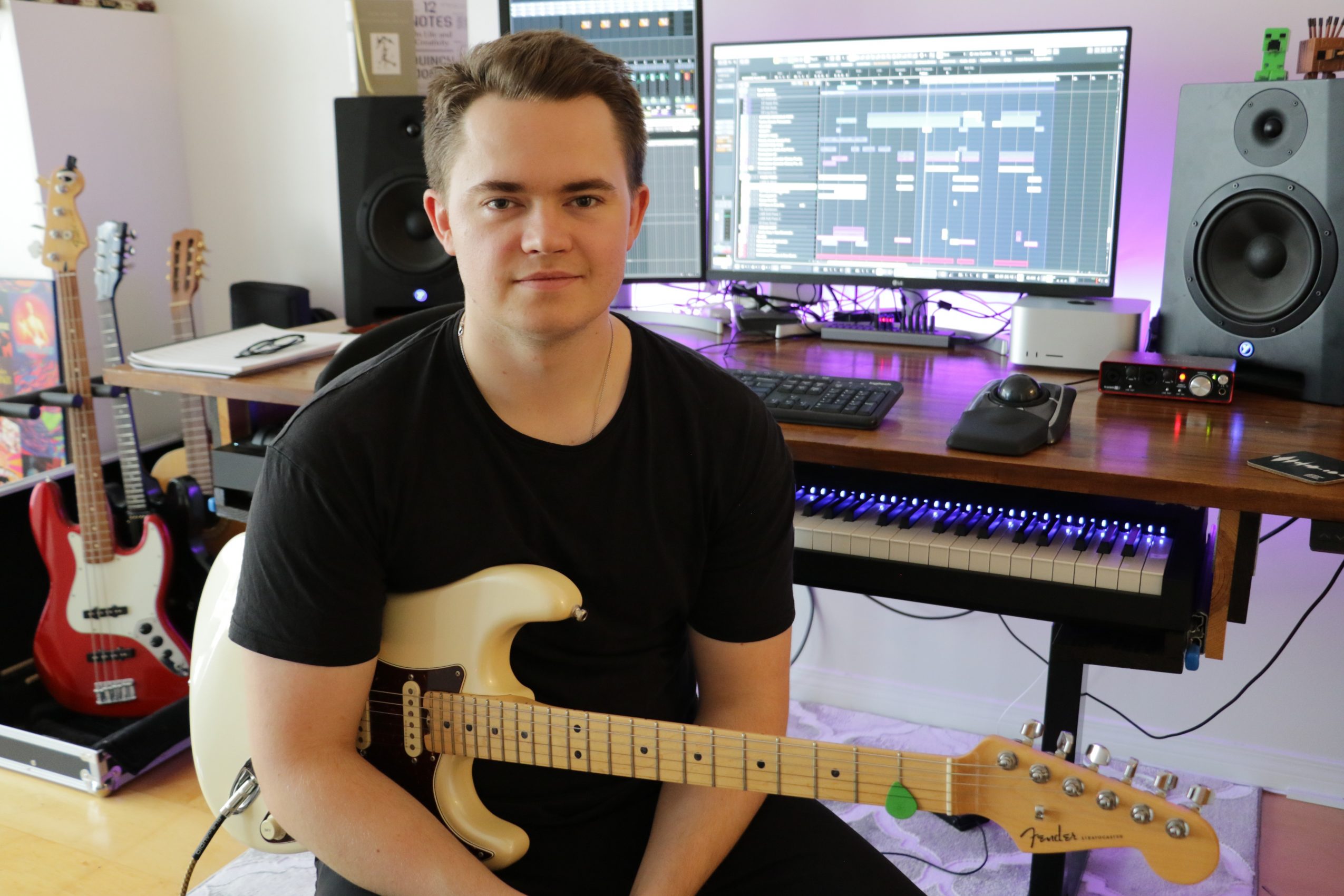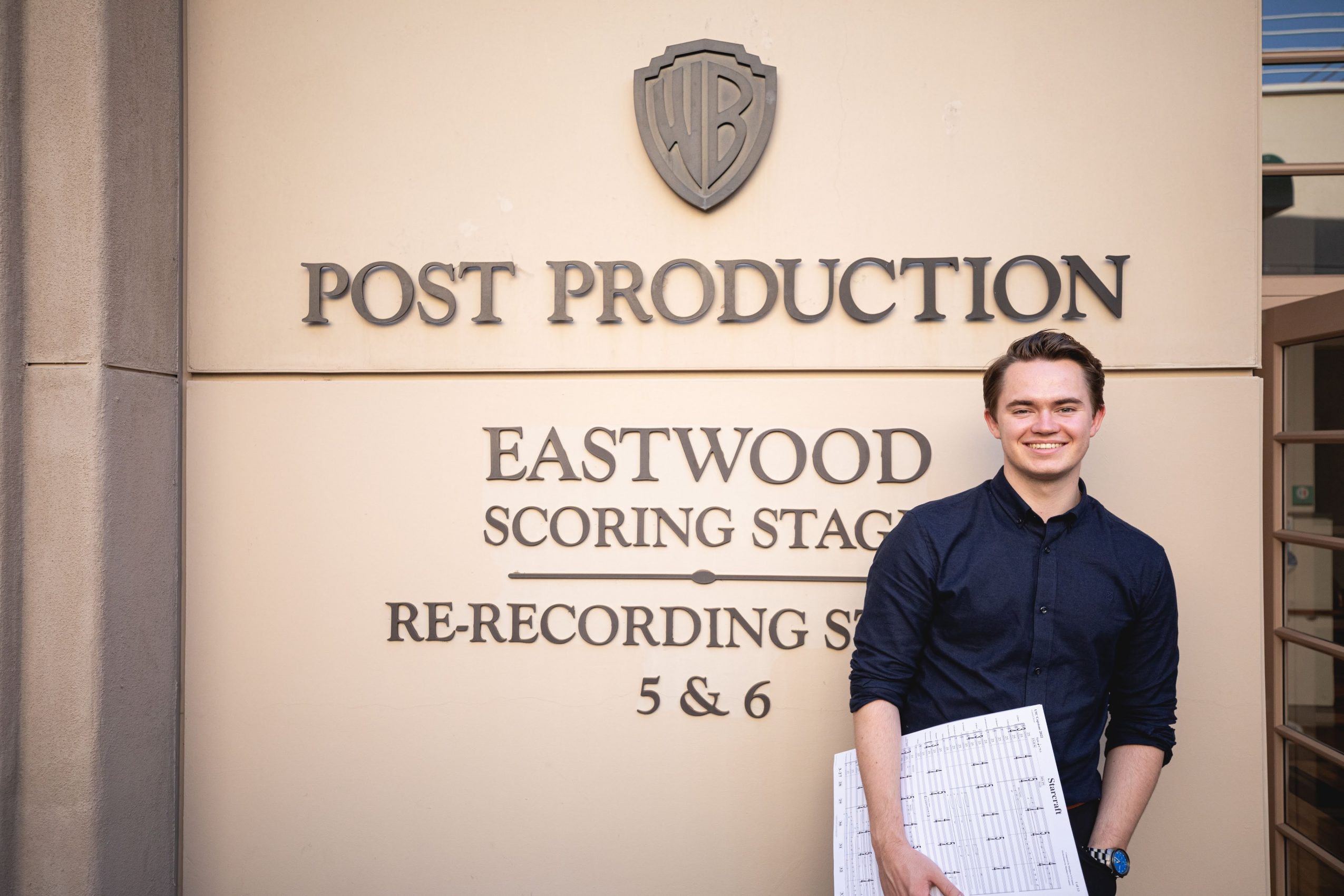

Today we’d like to introduce you to Matthew O’Connor.
Hi Matthew, we’re thrilled to have a chance to learn your story today. So, before we get into specifics, maybe you can briefly walk us through how you got to where you are today.
My strongest memories of growing up are accompanied by music. “Annie’s Song” by John Denver takes me back to the core of my childhood, Lord Huron’s Vide Noir is a place I can escape to when I can’t drive out to the mountains, and “Concerning Hobbits” by Howard Shore reminds me of when I fell in love with film scoring. Listening to music can transport me to a place or moment I want to remember, and I’ve always been captivated by the magic that creates these connections.
I was born in Alberta, Canada, and found my way into writing music relatively slowly. I wasn’t a child prodigy but when I was 11, I got my first guitar, and it became a driving force in my life. I went to university to study jazz and songwriting before shifting my focus to film and video game music in my senior year. I knew I had to get to LA to immerse myself in the world of film, so I emailed about fifty composers asking for advice, and three got back to me. They were generous with their time and incredibly insightful. At that time, that encouragement meant the world to me and motivated me to apply to the University of Southern California Thornton’s Screen Scoring Master’s program. I went to USC from 2021 until 2022 and soaked up all the experience I could. I made incredible friends that I visit as much as I can, many of whom happen to be gifted filmmakers and game developers.
After graduating, I decided to move back to Canada, where I’ve worked on AAA video games like Minecraft Legends and Disney Mirrorverse, assisting composer Crispin Hands, and have continued to work with collaborators in LA. This last year, I scored my first feature film with director Shane Stanger. Our film Good Bad Things was selected to Slamdance Film Festival in Park City, and we took home the Grand Jury and Audience awards in our category! I come back to LA often to mix and spot films, meet new people, and stay up all night catching up with my friends from USC.
Can you talk to us a bit about the challenges and lessons you’ve learned along the way? Looking back, would you say it’s been easy or smooth in retrospect?
Pursuing media composing, like many freelance creative paths, can easily consume a person. I’ve found that I have very little to offer as a composer if music is the only thing I spend my time on. I need to also bring perspective, energy and personality to the projects I work on, and I’ve found I can’t develop these things in front of my computer. For that reason, I’ve worked hard over the last few years at achieving a balance between my professional and personal ambitions. I’m working on creating a lifestyle that is driven by music but enriched by relationships, travel, exercise, and all the other great parts of life.
Alright, so let’s switch gears a bit and talk business. What should we know about your work?
I’ve found my work scoring drama resonates greatest with collaborators and audiences. Good Bad Things is my first feature film score and is a combination of the dramatic film scoring techniques I picked up in LA and my lifelong love of popular music.
Of course, whenever I get the chance to add live electric or acoustic guitar to a score, I jump at the opportunity. My Fender super reverb sits only a few feet away from my workstation, and it is always mic’d up. I use improvisation a great deal whenever I get to record guitar, a skill I carry over from my time studying jazz. One of my favorite techniques recently has been layering ten or more takes of soft fingerstyle guitar to create a super immersive sparkling effect that seems to work on just about anything.
I’m most proud of my compassion and my efforts to support others. People I’ve worked with can attest I’ll be the first to take on extra work even if it might fall outside my role as composer, and I work relentlessly to lift others up. Filmmaking and game development are fundamentally collaborative processes, and I pride myself on my ability to be someone who can always be counted on.
Are there any apps, books, podcasts, blogs, or other resources you think our readers should check out?
12 Notes on Life and Creativity by Quincy Jones is an inspirational short read. Quincy details events throughout his life that shaped the person he is today. The book is a great resource on how to build a personality/mindset that can lead you to success, regardless of what your talent is.
I also highly recommend finding mentors that have succeeded in the ways that you want to succeed and to take everything they say to heart. They could be successful in your field of work, or successful in their relationships, or anything else that you value. I find these types of people often have different perspectives than me, and their advice has steered me away from what could have been big mistakes. It’s incredibly motivating to have people to look up to, and it’s the best feeling in the world when they get to watch you succeed.
Contact Info:
- Website: https://www.mattomusic.com/
- Instagram: https://www.instagram.com/matto_music/
- Linkedin: www.linkedin.com/in/matthew-o-connor-b4606617b
- Other: https://www.imdb.com/name/nm11845864/?ref_=nv_sr_srsg_1_tt_0_nm_8_q_matthew%2520o%27connor



Image Credits
Christian Amonson














